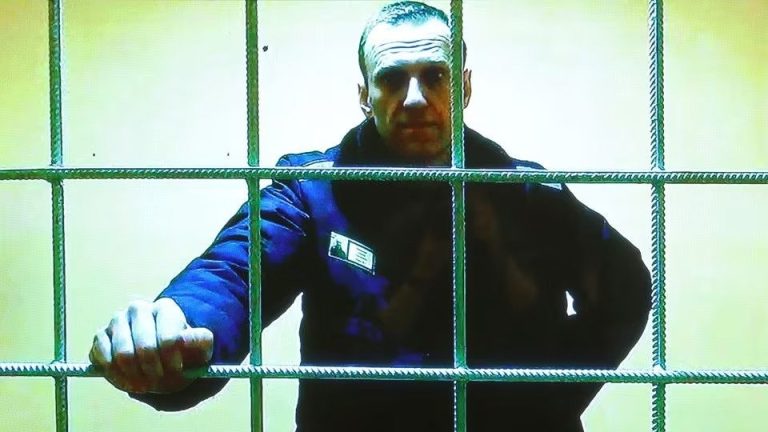Prominent Russian opposition leader Alexei Navalny tragically collapsed and died on Friday while serving a long prison sentence in the Arctic penal colony “Polar Wolf”. Russia’s prison service reported that Navalny, a 47-year-old former lawyer, was feeling unwell after a walk in the IK-3 penal colony in Kharp, about 1,200 miles (1,900 km) northeast of Moscow in the Arctic Circle Arctic.
Navalny rose to prominence more than a decade ago by denouncing the corruption and opulence of Russia’s elite through his blogs, calling them « crooks and thieves. »
Alexei Navalny lost consciousness almost immediately after feeling unwell during a walk in the IK-3 penal colony, according to the Russian Prison Service. Despite all the necessary resuscitation measures, they were unable to revive him. The cause of death remains under investigation.
The Kremlin confirmed that President Vladimir Putin had been informed of Navalny’s death, sparking outrage in the West, with some holding the Russian leader responsible. Navalny’s supporters, while unable to confirm his death, expressed the belief that if true, he had been killed.
“Russian authorities publish confessions that they killed Alexei Navalny in prison,” Navalny advisor Leonid Volkov wrote on X.
Tributes have poured in from Western officials, recognizing Alexei Navalny’s courage as a champion of freedom. Some, without providing evidence, directly accused the Kremlin. French Foreign Minister Stéphane Séjourne said: “Alexeï Navalny paid with his life for his resistance to a system of oppression.
His death in a penal colony reminds us of the reality of Vladimir Putin’s regime. »
As news of Alexei Navalny’s collapse and death spread, his lawyer was on his way to Kharp prison, where the opposition leader was serving multiple sentences totaling more than 30 years. Russian state television broadcast a press conference by the head of the central bank as the situation developed. Navalny’s spokeswoman, Kira Yarmysh, expressed uncertainty and said she had no confirmation of his death.
“I sincerely believe that it was the conditions of detention that led to Navalny’s death,” Russian newspaper editor and Nobel Peace Prize winner Dmitry Muratov told Reuters. “His sentence was completed with murder.”
Navalny’s supporters had envisioned him as a potential future leader of Russia, anticipating his release from prison to pursue the presidency. However, there were concerns among opposition activists, fearing for his safety within the Russian prison system.
In 2021, Navalny attracted international admiration by voluntarily returning to Russia from Germany, where he had undergone treatment for what Western laboratory tests confirmed was attempted nerve agent poisoning. He claimed to have been poisoned in Siberia in August 2020. The Kremlin, although it denied any assassination attempt, maintained there was no evidence of nerve agent poisoning.
With contributions from Reuters



